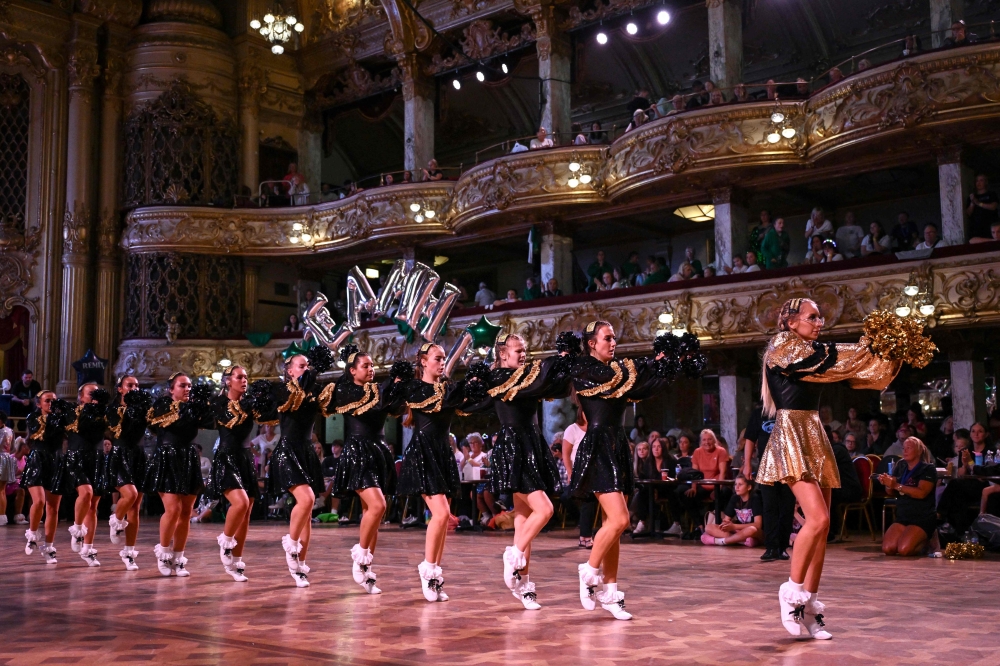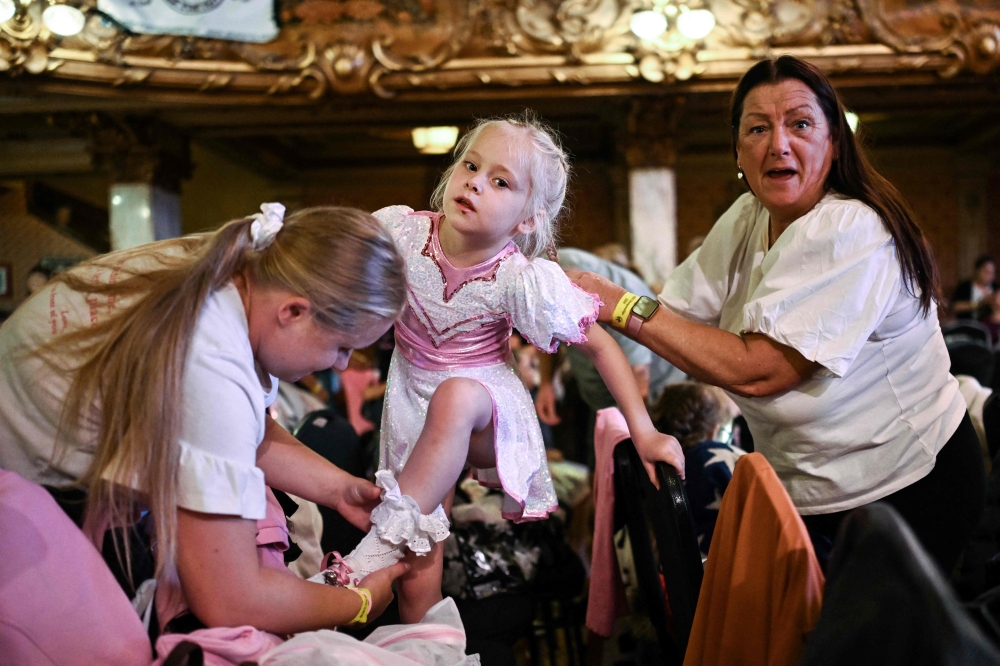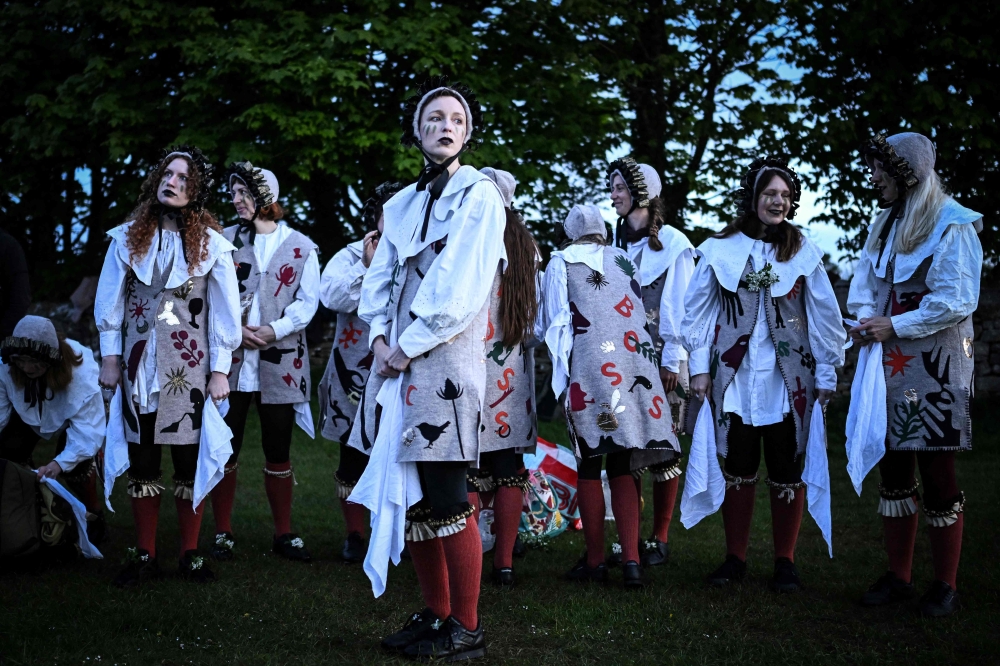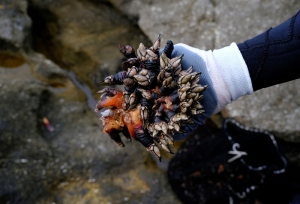- Home
- -
- News
Carnival Morris: Women and girls lead revival of traditional English dance with new energy and style
- admin
- 28 Oct, 2024
LONDON, Oct 28 — Rain might be falling outside on the promenade in the English seaside resort of Blackpool but the inside of the Tower Ballroom — billed as “the UK’s most spectacular” — is bathed in light, sequins, pompoms and music.
Dozens of women and girls are warming up before the end-of-season Carnival Morris dancing championships, which combines traditional English dance with Irish and Scottish forms, as well as cheerleading and jazz band majorettes.
Carnival Morris has its roots in the rhythmic, choreographed English folk dances that date back to medieval times but with a twist: only women can take part.
According to fans, it has become hugely popular in recent years.
“It’s the same steps and jumps as Morris dancing but Carnival Morris is for girls and women and it’s competitive,” said Susan Wilde, coach of the Platt Bridge team.
Now in her early 50s, she has been a member since she was five. The dance group has 70 members from age three to 60.
“It’s mainly the social aspect of the dance that I love,” she explained. “We’ve been through everything with the friends I’ve made here.”

Community spirit
The sprung floor of the Blackpool Tower Ballroom shakes under the dancers’ feet as they perform to a string of pop classics, including Sophie Ellis-Bexter’s Murder on the Dancefloor.
On the sidelines, Mel Sharrock, 36, is busy braiding the hair of her 12-year-old daughter, Ocean, who is dressed in a black and gold sequinned show outfit and watched by her grandmother.
All three are Carnival Morris dancers.
Despite the rhinestones, Carnival Morris, with its ruffled socks and dance shoes with bells, is an inexpensive hobby in a country where the cost of living has sky-rocketed in recent years.
“The families don’t have to pay for anything,” said Wilde. “When we travel for competitions the bus that we hire allows all the families to come with us and enjoy a day trip away.

“We only ask for a £5 (RM28) membership fee a week. We get grants from the council and we organise fund-raisers.”
That covers the cost of everything — costumes, props, sets, a training venue and the coach to get them from their base in the northwest town of Wigan, some 40 miles (65 kilometres) away.
In the audience, Lorraine Catterall, 53, has come to see her granddaughter. “Carnival Morris keeps our daughters off the street,” she said.
Ciere Woodhead, 24, who dances for Platt Bridge, said it had given her a structure and discipline that she was happy to pass on to the youngsters she trains.

Boss ladies
The Morris Federation — the UK’s largest association of Morris and traditional dance teams — said last year that most of the 770 “sides” in the UK were now women — an historic first.
Two-thirds of new recruits are female.
Traditionally, Morris dancing was for men only but several all-female teams were created in the 1970s, including the first in Windsor, west of London, in 1974.
Fifty years on, Windsor Morris is still going strong. “It was liberating,” said Beth Neil, 70, one of the founders. “There was a feeling of sisterhood between us, which continues today with the new recruits.
“If we keep on modifying our dances, on being inventive, on evolving, young people will continue to come and keep this tradition alive.”
Flora Dodd, 26, is a recent recruit and understands the attraction. “I have the feeling that after Covid, a lot of people thought about their roots and their country’s traditions, what makes a country and how we want to define it,” she said.
Rebecca MacMillan, 45, joined Boss Morris for a similar reason.
“After the Brexit referendum (in 2016) I needed to make up with my country and its traditions,” she said as she put on her make-up before a performance in Stroud, south-west England.
Founded in 2015, the 12-strong team of self-styled “female creatives” was founded as a kind of “safe space”, said one of its members, Rhia Davenport.
As well as winning new audiences, and shaping the future of the tradition, Boss Morris wants to “reclaim the narrative around our culture and past and how we feel about ‘England’ and ‘Englishness’”.
“It’s my sister who came up with the idea Boss Morris, and we loved it,” said co-founder Alex Merry.
“It was very powerful. It sounds a bit like women are in charge.” — ETX Studio


